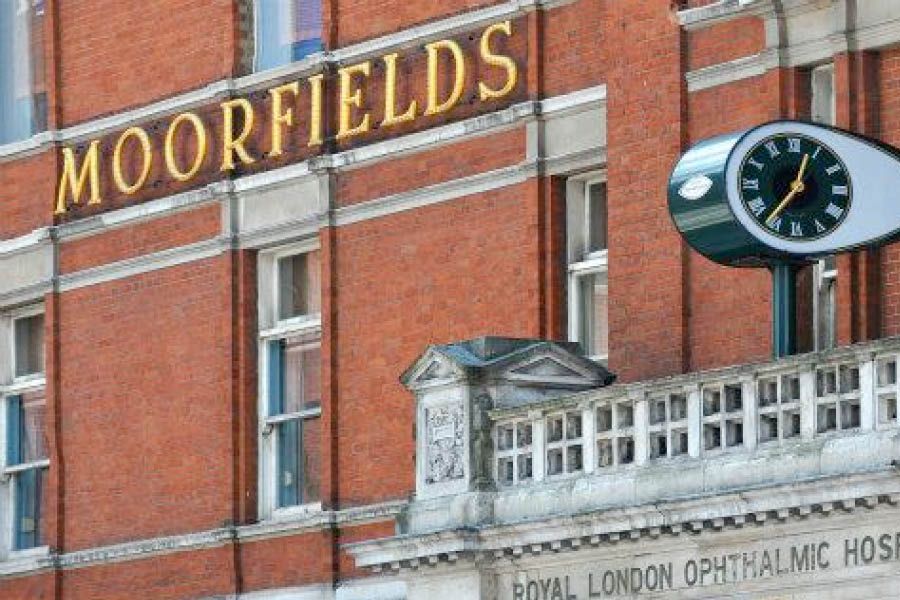Patients regain sight after being first to receive retinal tissue engineered from stem cells
- Successful trial on patients using new stem cell based treatment for wet age-related macular degeneration (AMD).
- Results from a clinical study suggest the treatment is safe and effective.
- The study is a major milestone for the London Project to Cure
Blindness and could lead to an ‘off-the-shelf’ treatment within five
years.
The first patients to receive a new treatment derived from stem cells for people with wet age-related macular degeneration (AMD) have regained reading vision.
The results of this ground-breaking clinical study, published in Nature Biotech, described the implantation of a specially engineered patch of retinal pigment epithelium cells derived from stem cells to treat people with sudden severe sight loss from wet AMD. It is hoped that it will also help treat dry AMD in the future.
It’s the first description of a complete engineered tissue that has been successfully used in this way.
The study is a major milestone for the London Project to Cure Blindness, a partnership between Professor Pete Coffey from University College London and Professor Lyndon da Cruz, a retinal surgeon at Moorfields Eye Hospital NHS Foundation Trust. The Project has also been supported by the UCL Institute of Ophthalmology and the National Institute for Health Research (NIHR).
AMD is the most common cause of sight loss in the UK, and can lead to
a rapid loss of central (reading) vision. The two patients who
underwent the procedure, a woman in her early 60s and a man in his 80s,
had the severe form of the condition (wet AMD) and declining vision.
The study investigated whether the diseased cells at the back the
patients’ affected eye could be replenished using the stem cell based
patch. A specially engineered surgical tool was used to insert the patch
under the retina in the affected eye of each patient in an operation
lasting one to two hours.
The patients were monitored for 12 months and reported improvements
to their vision. They went from not being able to read at all even with
glasses, to reading 60-80 words per minute with normal reading glasses.
Douglas Waters, 86, from Croydon, London, was one of two people who had
received the treatment at Moorfields Eye Hospital. He developed severe
wet AMD in July 2015 and received the treatment three months later in
his right eye.
He says: “In the months before the operation my sight was really poor and I couldn’t see anything out of my right eye. I was struggling to see things clearly, even when up-close. After the surgery my eyesight improved to the point where I can now read the newspaper and help my wife out with the gardening. It’s brilliant what the team have done and I feel so lucky to have been given my sight back.”
Professor Lyndon da Cruz, consultant retinal surgeon at Moorfields Eye Hospital NHS Foundation Trust said:
“The results suggest that this new therapeutic approach is safe and provides good visual outcomes. The patients who received the treatment had very severe AMD, and their improved vision will go some way towards enhancing their quality of life. We recognise that this is a small group of patients, but we hope that what we have learned from this study will benefit many more in the future.”
Professor Pete Coffey, UCL Institute of Ophthalmology said:
“This study represents real progress in regenerative medicine and opens the door to new treatment options for people with age-related macular degeneration. We hope this will lead to an affordable ‘off-the-shelf’ therapy that could be made available to NHS patients within the next five years.”
How the procedure works
The retina is made of many different layers. One of the critical layers, called the retinal pigment epithelium (RPE) separates blood vessels from the nerve layer and nourishes the retina. This layer is damaged in patients with AMD.
In this new approach, researchers took a stem cell – which is a single cell – and reproduced it many times, turning them into a perfect copy of the RPE layer that needs to be replaced in patients with AMD. This is then placed onto a patch and inserted under the retina to replace the damaged cells.
Age-related macular degeneration (AMD) is the most common cause of sight loss in the developed world. More than 600,000 people are affected by AMD in the UK. (Macular Society). It usually affects people over the age of 60. There are two types of AMD, wet and dry.
Wet AMD develops when abnormal blood vessels grow into the macula. These leak blood or fluid which leads to vision loss and secondary scarring of the macula and in some cases, rapid loss of central (reading) vision. There is no cure for wet AMD, but it can be treated by injecting drugs into the eye to stop the growth of the abnormal blood vessels. These injections are needed regularly to preserve vision.
Dry AMD is the most common type of macular degeneration and affects 90% of the people who have the condition. In the dry form, there is a breakdown or thinning of the layer of retinal pigment epithelial cells (RPE) in the macula. These RPE cells support the light sensitive photoreceptor cells that are so critical to vision. There is no treatment at present for dry AMD after the photoreceptors are lost.
